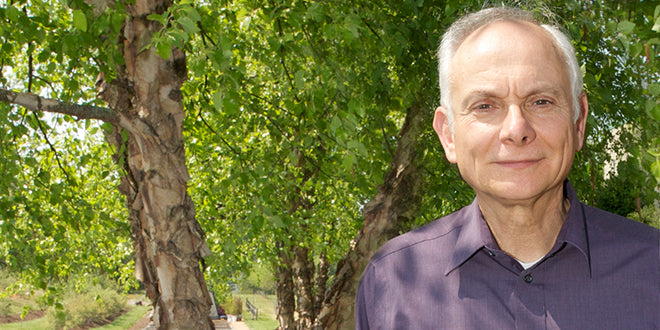You don't need to exercise if you're on The Hallelujah Diet — right?
Wrong!
There's a big difference between fitness and thinness.
Dave Hubbard should know.
He was a pro football player who gradually lost his "fitness" after retiring from the game.
But he didn't want to work out for hours every day like he did during his career.
Then, he discovered an amazing truth about short intensity exercise. We asked him to share the secret on today's blog post...
Guest Blogger: Dave Hubbard
The fact that you're not overweight
does not necessarily mean you're healthy — even if you're 100% on The Hallelujah Diet!
You see, there's a big difference between fitness and thinness.
Recent studies at Yale University School of Medicine show that even lean and healthy-looking people are showing a higher incidence of fat buildup in their muscle.
Fat builds in the muscle when muscle decreases.
Far too many people today have lost their strength, having bought into the myth that getting to a certain weight on the scale means they’re healthy. Health has to do with far more than calories consumed.
The only way to shrink intramuscular fat is to build and maintain muscle.
Why is decreasing muscle fat so important?
Because high body fat has been implicated in the increased prevalence of insulin resistance and Type 2 diabetes, which is rapidly rising in America.
But here's the good news...
A recent British study proves that
rigorous workouts, only lasting a few minutes, help to prevent diabetes by helping control blood sugar.
This exciting new research suggests that people unable to exercise
can still benefit from exercise by doing short bursts of vigorous, high intensity exercise.
They discovered that doing tense muscle contractions during vigorous exercise greatly enhances insulin’s ability to clear glucose out of the bloodstream.
Plus, there's another advantage of short workout routines that involves one of the most widely publicized anti-aging hormones, human growth hormone (HGH).
HGH is renowned for its ability to stimulate muscle development and bone growth, and fuel immune activity while switching your body into a potent, fat-burning machine.
After age 20, our natural production of HGH begins to decline at an average rate of 14% per decade — but strength-building exercise that’s done at high intensity for short periods of time (just 5-15 minutes) greatly enhances HGH secretion and is the best way to look and feel younger.
The truth is that many people today are over-exercising, which can severely dampen their weight loss, energy levels, and immune function.
So now that you know the secret to fighting off body fat, mental decline, Type 2 diabetes, and looking and feeling younger than you are, it's time to make a change!
Add the right kind of exercise back into your daily routine!
Read Dave Hubbard's expanded article, Anti-Aging Through Exercise, in the Spring 2013 edition of Health News Magazine!






